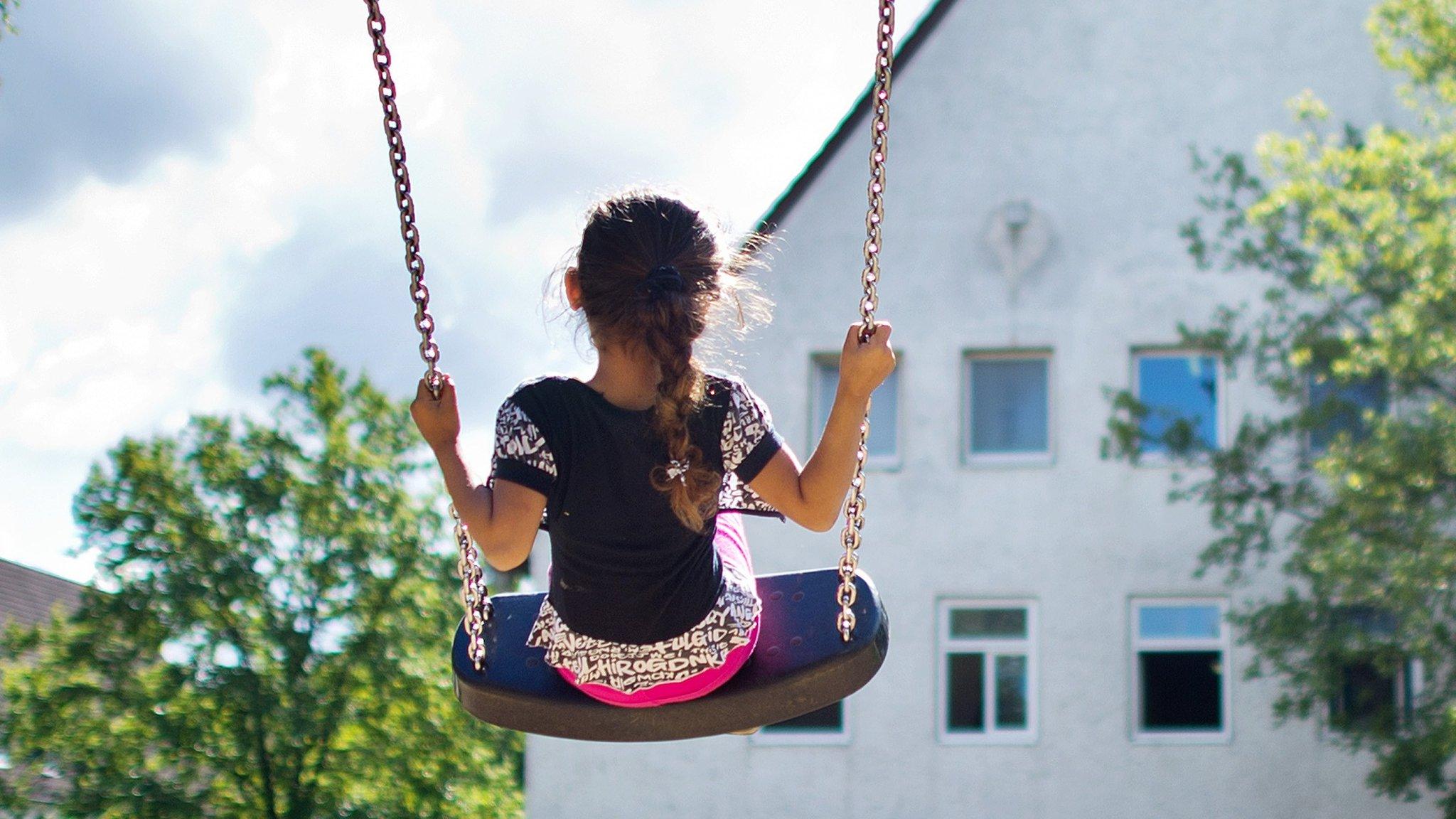'Why I decided to stop being a foster carer'
- Published
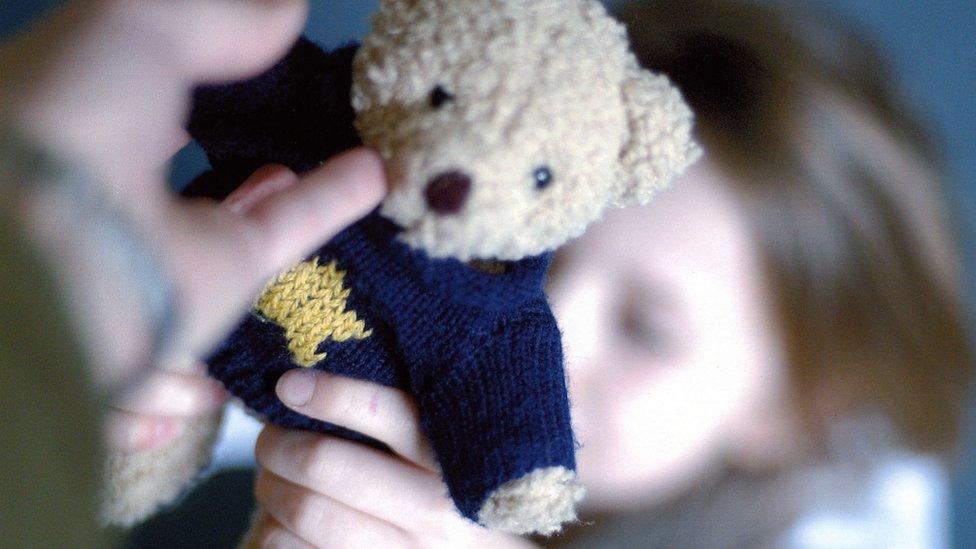
Nicola Kalisperas has fostered seven children, but even though she wants to, she hasn't been able to keep in touch with them all.
Foster children are often discouraged, or even prevented from, remaining in contact with their foster families once they have been adopted.
Nicola is worried this "clean-break" ideology is one of the reasons looked-after children have poorer outcomes than the general population.
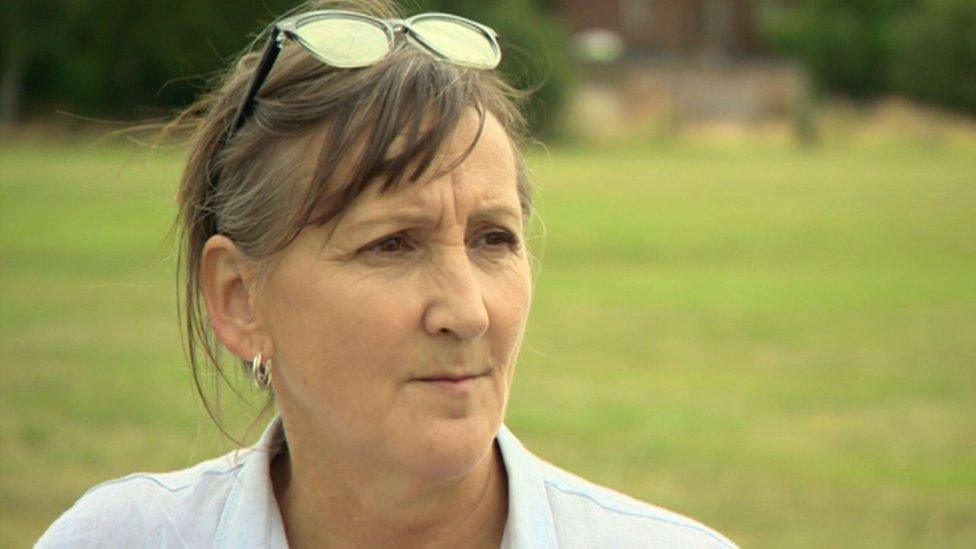
Nicola says she feels the system is harming children
Nicola says the children often don't understand what is happening to them. She said: "What the child understands is: 'This person loved me and left me. Now this other person has loved me and left me.'"
There can be many reasons for those involved in the process to want a clean-break adoption.
The ideal outcome for local authorities is to process the adoption as quickly as possible so the child is no longer in the care system.
Geraldine speaks about the challenges and joys of being a foster carer
Often the adoptive family would prefer a fresh start with the child. Despite a glowing report from her local authority, Nicola and her husband have now decided to stop fostering altogether.
"We started to feel like we are in a system which is harming children," said Nicola, who is from London.
A number of situations have caused her to change her mind about fostering. One of them involved a young girl with whom she promised she would stay in touch.
"We were encouraged to promise, we said we would come and see her and bring the dog to her, but as soon as she left we weren't allowed to see her."
Another was with a young child who Nicola looked after for years before he was eventually adopted. After a few weeks Nicola and her husband were allowed a heavily supervised visit, which she said was confusing for the child and distressing for her.
She said: "He was terrified of me, somebody who had cared for that child for two years. Of course he's going to be terrified, he's probably furious with me and my husband for leaving."
All over the UK looked-after children move repeatedly in and out of care, or between placements. NSPCC research suggests that when looked-after children are compared with children who have not been in care, they tend to have poorer outcomes in education and in mental and physical health.
Former child and adolescent mental health worker Sarah Anderson is the founder of the charity Fosterwiki and became a foster parent after working with looked-after children as part of her NHS role.
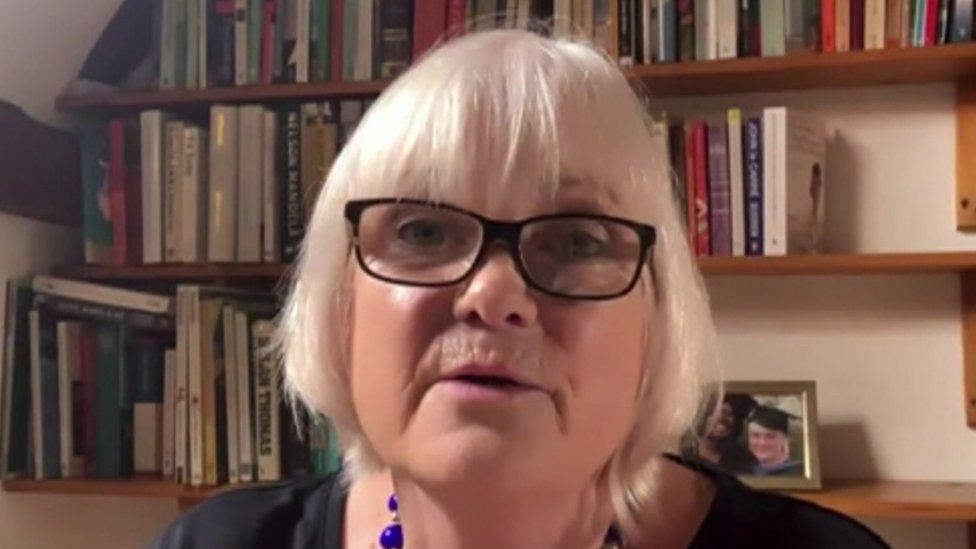
Sarah Anderson says better understanding of a child's experience is needed
She said: "I was seeing a lot of children bounced around the system. Their behaviour was taken at face value, they were misunderstood, instead of seeing it as a symptom of the trauma.
"I don't think enough is done to understand what these children go through."
Fosterwiki is launching a campaign later this year in Parliament, with Nicola Kalisperas, to try to change policy to better support foster families to stay in touch with those they've cared for.
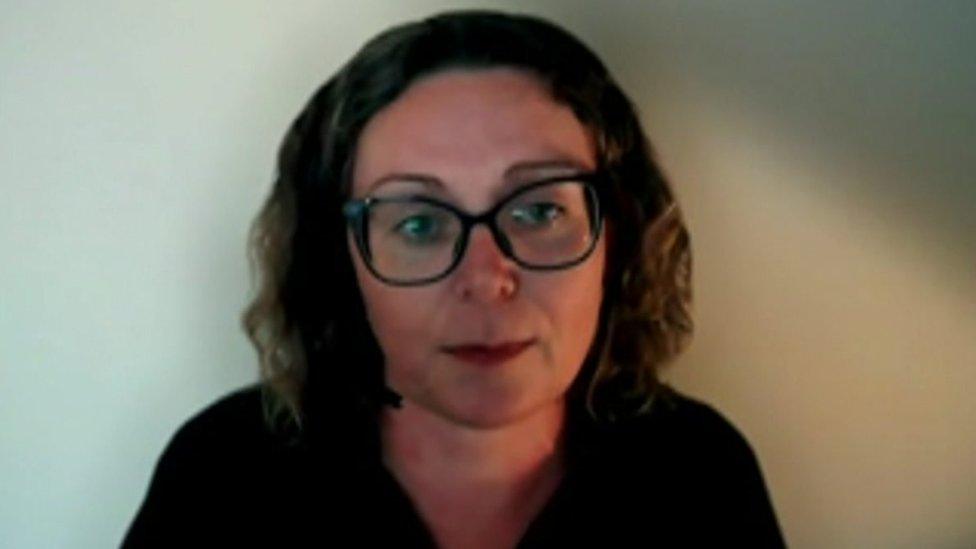
Sarah Thomas wants better consideration of the child's perspective
The Fostering Network is the UK's leading fostering charity. Chief executive Sarah Thomas says that while some carers are supported to keep in contact with their foster children - and attend birthdays, graduations and weddings - many are not.
She said: "We hear about situations where foster carers are not supported in maintaining a relationship, and sometimes that's because we're thinking about it from the adult's perspective, rather than the child's."
Rae Mortimer's parents fostered children throughout her childhood, who she and her brothers missed when they left.
She said: "I think it's important to remember the relationships and the connections that are made, and to create spaces for them to continue.
"When that is lost you almost feel like you've lost a bit of what your family was at that time."
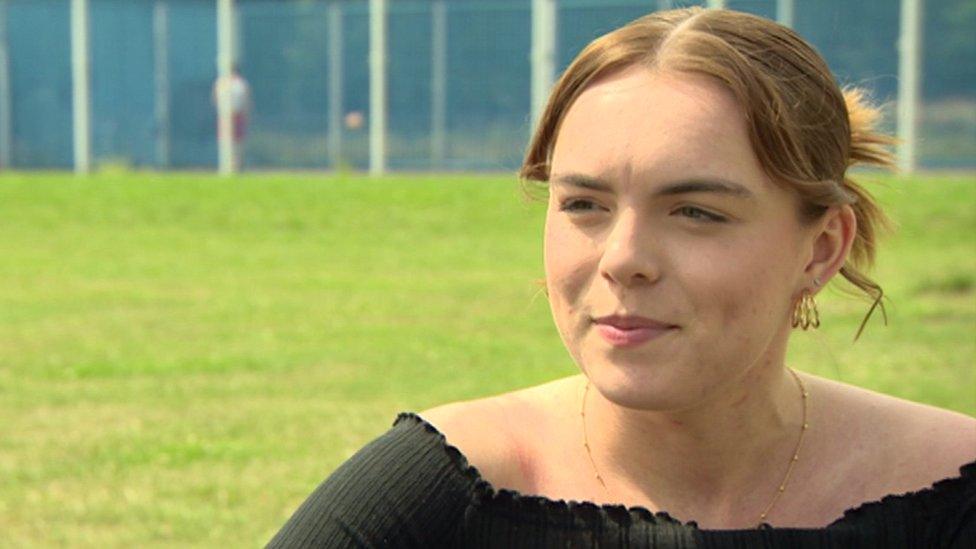
Rae Mortimer says she isn't put off fostering in future
She added: "It's definitely taught me a lot about life, about people, about people's backgrounds and where they've come from, to love and to forgive.
"I always say I am who I am because of fostering."

Follow BBC London on Facebook, external, Twitter , externaland Instagram, external. Send your story ideas to hellobbclondon@bbc.co.uk
Related topics
- Published5 August 2023
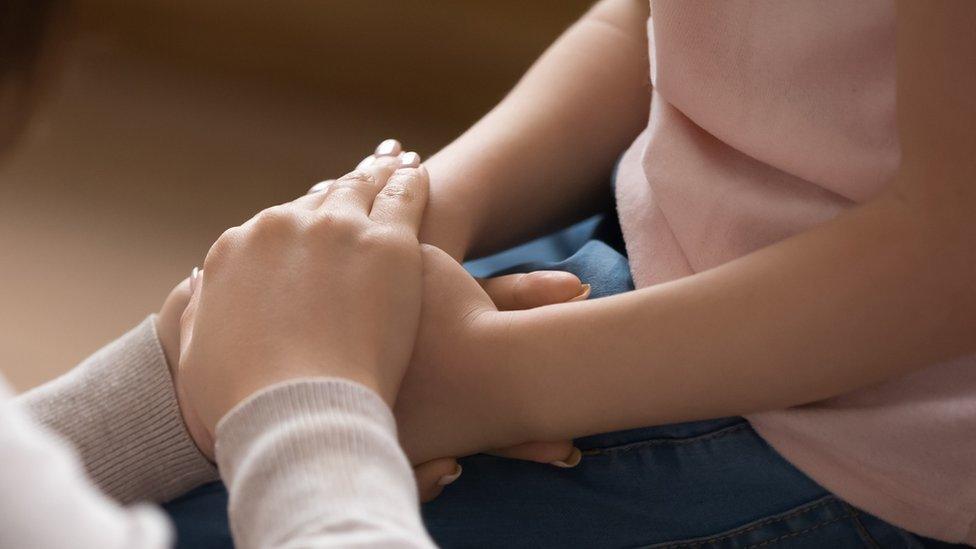
- Published11 July 2023
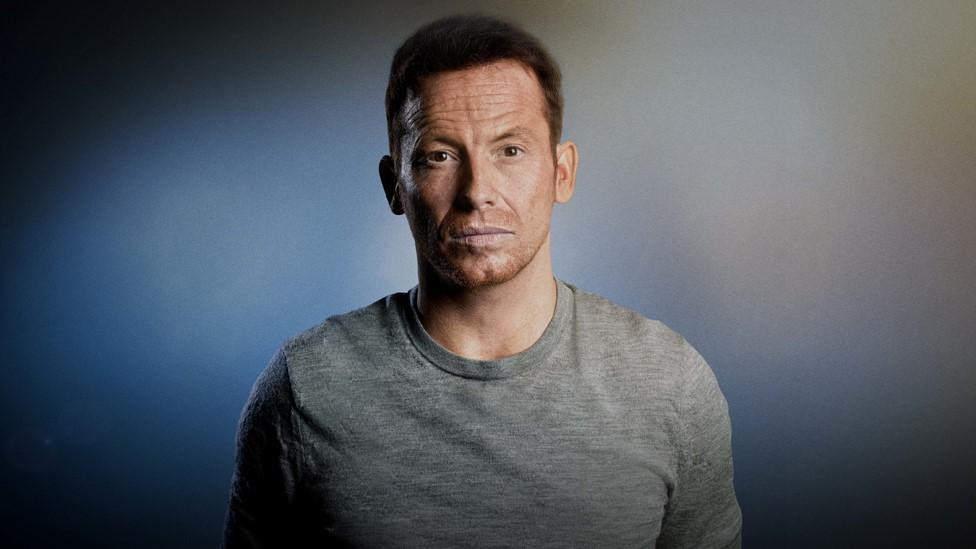
- Published12 June 2023
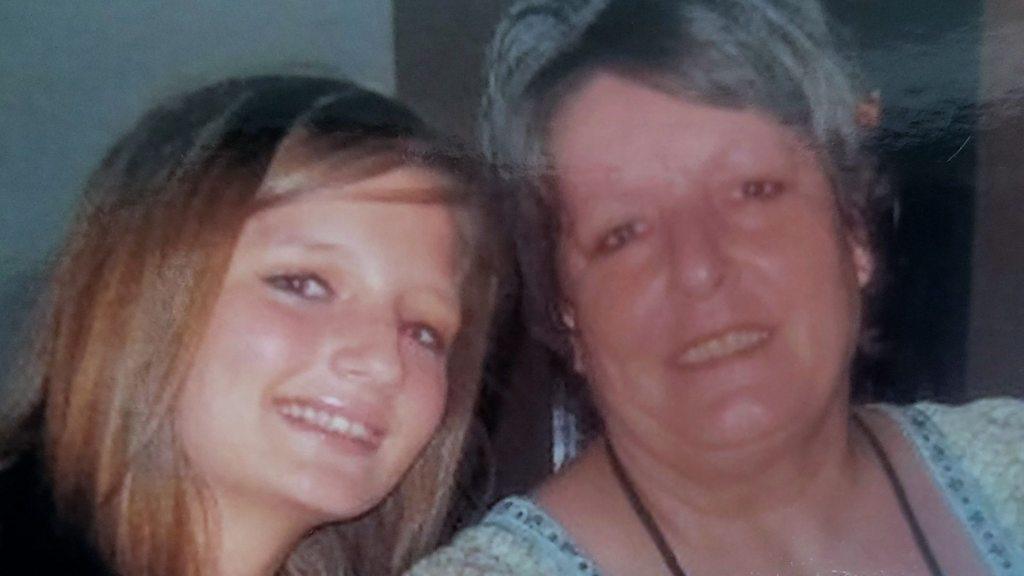
- Published30 August 2017
